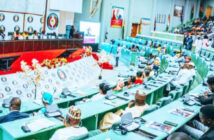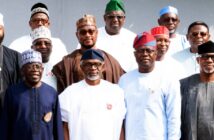Mami Mizutori, UN Special Representative of the Secretary-General for Disaster Risk Reduction, has called on Africa Governments to summon political will in data collection and analysis.
Mizutori made the call on Wednesday at a panel discussion on Importance of Data at the ongoing seventh Session of the Africa Regional Forum on Sustainable Development (ARFSD).
The four-day forum, being monitored by the News Agency of Nigeria (NAN) via webinar, started on Monday, and ends on Friday.
Theme of the event hosted by Congo, is: “Building Forward Better: Toward Resilient and Green Africa to Achieve the 2030 Agenda and Agenda 2063.”
Mizutori said that disaster, more than anything else, undermined development.
According to her, as such, nations must place great emphasis on specific data on how such disasters affect income, production and other livelihood.
“There is an urgent need to disaggregate data and fully engage the most vulnerable in understanding what is happening,” she said.
Mizutori said there was less coming in as regard aggregate data of how COVID-19 and climate change affect income and economic wellbeing of the people.
“It is very important that we have the political will for data collection and analysis.
“We also need to bring in the academics in data collection as well as relevant regional, sub-regional and Civil Society Organisations into data collection and analysis,” she said.
Mizutori, also said that good quality data and statistics were important for informing development decisions.
She added that Africa should not be found wanting as it seeks to meet the global 2030 Agenda for Sustainable Development and Africa’s Agenda 2063.
“The most important thing for data collection is the political will.
“If at the highest level of policy there is the will to invest in data collection and analysis, to invest in capacity development, then we can do better.
“Disaster risk reduction is such an important theme for the 2030 Agenda and Agenda 2063, because disasters undermine sustainable development,” she said.
Mizutori said there was less data coming through from member States in terms of economic loss and disruption of services.
“Another challenge we see is that there is not enough disaggregated data coming in that is data disaggregated by income, sex, age by disability and geographic location.
“Disaggregated data are important because without them we cannot understand where the vulnerabilities are and if we cannot deal with the vulnerabilities we cannot have good policies for good disaster reduction,” she said.
Other speakers during the session included Oliver Chinganya, Director of the ECA’s African Centre for Statistics; and Kipyego Cheluget, COMESA Assistant Secretary General (Programmes).
Malawi Vice President, Saulos Klaus Chilima, also contributed to the discussions.
Chilima said Malawi’s investment in data collection and statistical systems had paid handsomely in enabling the country to hold regular demographic surveys and tracking progress on its SDGs goals.




